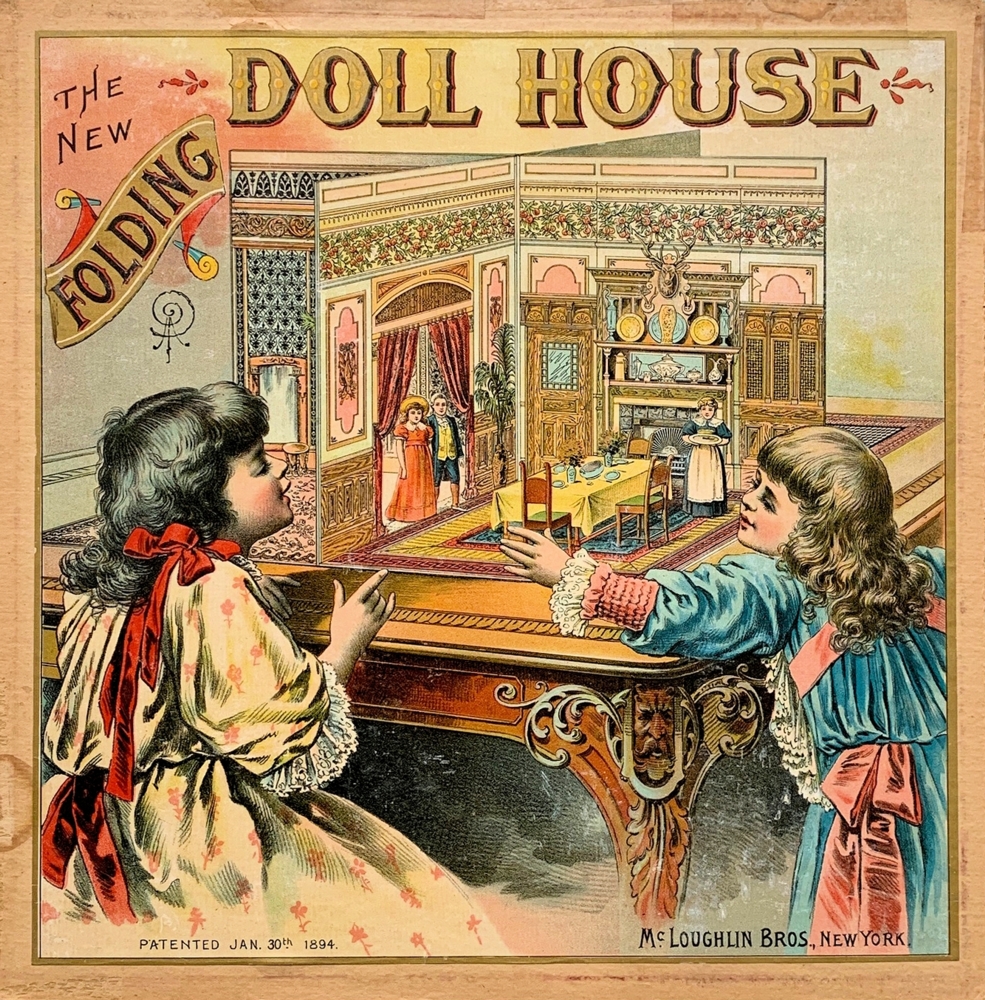
The New Folding Doll House
McLoughlin Bros., New York City
1894
Offers
Shipping $99 Standard Parcel View Options
Questions about this piece
Item Details:
THE NEW FOLDING DOLL HOUSE
MCLOUGHLIN BROTHERS, NEW YORK CITY
EARLY AMERICAN TOY, 1894
Chromolithograped on Paper, Textile and Cardboard
Size: 13 x 13 in; 33.0 x 33.0 cm
"Patented July 1894"--Bottom of parlor panel
Large colour lithograph inside box lid shows two girls at play with the doll house; printed label on exterior of parlor panel gives "Directions for opening and closing the dollhouse.".
Eight hinged panels unfold to make four rooms: parlor, dining room, bedroom and kitchen. An 1896 McLoughlin Bros. catalog (quoted in Jacobs' History of Doll's Houses) describes it this way: "It makes four rooms, Parlor, Dining-room, Bed-room and Kitchen, each 13 inches square, without roof, parted off by partitions 13 inches high. It is designed to be played with on a table. A number of little girls may thus get round it to the very best advantage. It is made of stout binder's board covered with colored designs representing the carpets, walls, windows, mantels, etc., as seen in houses. It is designed to be furnished with paper or other small furniture, and to be occupied by paper or other small dolls.".
McLoughlin Bros. developed out of a printing company started in New York in 1828. After an 1840 merger with John Elton, John McLoughlin, Jr. and his brother Edmund took over the business giving it the name by which it is here known. The company became known as the premier publisher of children's books in America. It was bought by Milton Bradley in 1920 and continued as a division there until 1944
U.S. patent 513,688 dated January 30, 1894 lists inventor as Eleanor McCulloch Smith of Baltimore, Maryland, assigned to McLoughlin Brothers
Reference: Paper toys of the world, p. 132
Provenance: Private collection, New York City from whom the current owner obtained the work
Creator: McLoughlin Brothers, New York City
Creation Year: 1894
Size: 13 x 13 in
Medium:Chromolithograped on Paper, Textile & Cardboard
Movement/Style: Early American Toy
Period: Late 19th Century
Condition: Excellent
